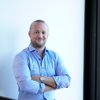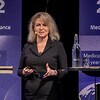-

Genmab to Acquire Dutch biotech for USD 8 Billion
Danish pharmaceutical company Genmab has agreed to acquire Dutch firm Merus, a developer of cancer therapies, for USD 8 billion, equivalent to nearly SEK 75 billion.
-

Mikael Kubista back with new venture after turbulent exit
Entrepreneur and researcher Mikael Kubista is starting a new company. Now he is also free to comment on the sequence of events that led to him losing ownership of his life's work – the company Tataa Biocenter. “Not only did they take our company away from us. They followed up by showering us with lawsuits,” he says.
-

Security flaw in Swedish breast cancer screening software – woman passed away
A lack of safeguard in Sectra's software led to a woman with breast cancer receiving an incorrect diagnosis. She later passed away. The software is used in 20 out of 21 regions in Sweden. It is also used in neighbouring Nordic countries. “Extremely serious,” says the Sectra CEO to Medtech Magazine.
-

The business coach: “We need to learn from our mistakes”
The past year has been challenging for many biotech companies, with several comapanies facing financial stress and bankruptcy. To understand how entrepreneurs can navigate these tough times, Life Science Sweden spoke to Pia Keyser, a business coach at Umeå Biotech Incubator, who has worked with many companies in the industry.
-

The future of healthcare in focus: ”Together, things happen”
In march, it’s once again time for Fokus Patient, an event for the industry where the patients’ perspective takes center stage. It’s a great way to spread knowledge in Sweden and around the world, according to the initiator Penilla Gunther
-

Rise and Scantox cease conducting animal testing in Stockholm
Access to in vivo toxicology services is significantly decreasing in the Stockholm area as Rise shuts down animal testing and Scantox reorganizes. ”The costs are high, and demand is weak”, says the division manager at Rise to Life Science Sweden.
-

Investigations against AstraZeneca: ”Chinese interests may be behind them”
Why are there several investigations against AstraZeneca employees in China right now? Life Science Sweden continues to seek answers.
-

New large lab building in Lund inaugurated – here are the companies moving in
Medicon Village has received a new laboratory building. On Friday last week the building was inaugurated with a ribbon-cutting ceremony by Minister for Employment and Integration Mats Persson (L) and construction contractor Mats Paulsson.
-

Anna Törner: ”Mom, do you think you’ll ever get married again?”
”I realize I’m slowly descending into that familiar statistical rabbit hole, where life’s biggest uncertainties are reduced to point estimates and confidence intervals”, Anna Törner writes in a column.
-

Danish obesity success causes recruitment problems in southern Sweden
The substantial expansion of Danish Novo Nordisk is affecting companies in southern Sweden, which are finding it increasingly difficult to compete for attractive staff.
-

Innovative start-up helps doctors, scientists and industry balance coagulation risks
For many doctors caring for seriously ill patients, for example, in stroke units and cancer wards, maintaining the life-saving balance between bleeding and thrombosis is an ongoing challenge. In the late 1980s, scientists at Maastricht University in the Netherlands developed an innovative method, the thrombin generation assay (TGA), which provides a complete overview of a physiological process crucial for maintaining normal haemostasis.
-

“Conducting research at universities is becoming more and more like working at a research hotel”
The government wants Swedish research to focus on excellence and innovation, but can the two be combined? Life Science Sweden talks to Anna Falk, a professor at Lund University, about research policy, the constant hunt for funding in academia and what constitutes ‘fine research’.
-

“A major energy boost for the entire cancer vaccine field”
The development of cancer vaccines has accelerated in recent years. Norwegian Ultimovacs is one of the companies attempting to develop a new type of treatment line for cancer patients, and the company recently presented positive data from a phase II study.
-

“You discover one thing – and then 10 new questions arise”
COVID-19, diabetes, heart disease, and the impact of dog ownership on humans are just some of multitasker Tove Fall’s areas of research. However, her current focus is on her next field: the role of gut flora in human health.
-

The first drugs to slow down Alzheimer’s – but what does it mean for patients?
New treatments for early Alzheimer’s are bringing hope to thousands of patients and their families. The question is, who will get the treatment, how will the right patients be found in time, and will the healthcare system’s resources be sufficient? Life Science Sweden has spoken to Swedish researchers in Alzheimer’s who voice cautious hope but also see further challenges.
-

Charlotta Gummeson leaves Sahlgrenska Science Park – “It feels sad and exciting at the same time”
With mixed emotions, Charlotta Gummeson will leave her position as CEO of Sahlgrenska Science Park in October. “It feels sad and exciting at the same time. I’ve been in the thick of things and part of the development for so long now, but I’m also looking forward and thinking about all the new things that there will be in a freer role,” she says to Life Science Sweden
-

Life Science Sweden heads to the Oresund region! ‒ Hello there Michael Linnell
Life Science Sweden’s The Future of Swedish Danish Life Science and New Updates in Drug Formulation & Bioavailability meetings are coming up soon. We asked Michael Linnell, project manager for Life Science Sweden’s event portfolio, a few short questions.
-

Rapid developments in AI – “All stakeholders are struggling to understand it”
Artificial intelligence is being discussed more and more, and developments in the field are moving rapidly. As the Swedish Medical Products Agency testifies, keeping up with developments is not easy.
-

The impact of the recession on the Swedish medtech sector
We need health care regardless of whether the economy is good or bad, but the current recession also affects the Medtech sector.
-

Column: ”We need to exploit the benefits of the regulations“
You don’t need to search long on the Internet to find lists of the most innovative countries with Sweden ranking at the top. Sweden generally offers good conditions for growing new solutions, but it is also becoming increasingly clear that we are challenged in one area – regulations, writes Björn Arvidsson in a column.
-

“We are Europe’s hotspot in life science”
The Medicon Valley Alliance has worked for competence development in life science in Denmark and Sweden for a quarter of a century. Anette Steenberg, CEO, sees the anniversary as a recognition of MVA’s explosive power.
-

He is zooming in on topical preparations
According to Zelmic CEO David Sagna, topical products in drug development is a growing market, and to keep pace with the development, the company is awaiting approval for its new GMP facility.
-

Neanderthal genes and Nobel Prize in a popular lecture at Bioscience
An inherited gene variant from our ”evolutionary cousins” – the extinct Neanderthals – may affect how our bodies break down certain drugs. “It’s only a matter of time before we actively start screening for it,” said KI researcher Hugo Zeberg when describing the study at Bioscience 2022.
-
Business Sweden’s new team is rolling out the blue-yellow carpet
According to Business Sweden’s life science team, the combination of substantial medical know-how and an ever-flourishing tech sector is a success factor for Sweden. “It’s a perfect storm, a beneficent, perfect storm,” says Programme Manager Britta Stenson.
Få tillgång till allt innehåll på Life Science Sweden
Ingen bindningstid eller kortinformation krävs
Redan prenumerant? Logga in
Gäller endast personlig prenumeration.
Kontakta oss för en företagslösning.